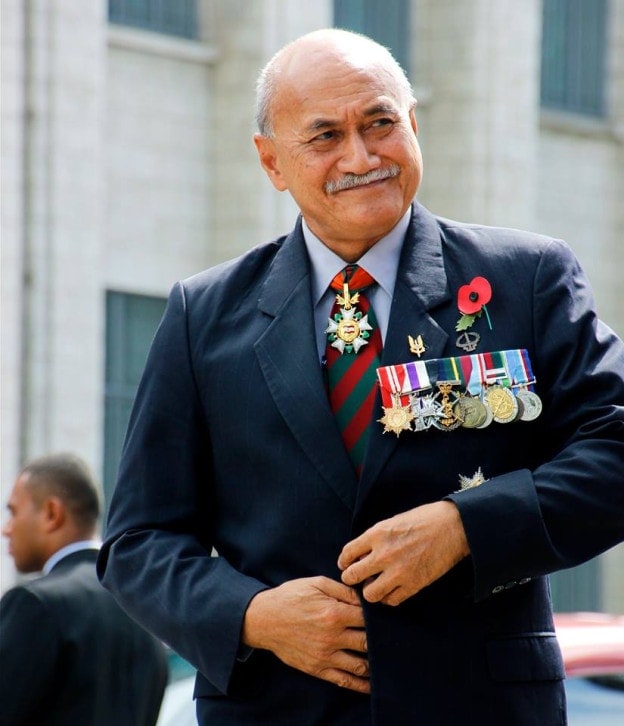
, news editor, Adventist Review
A Seventh-day Adventist believer has been elected as the next president of Fiji, making history in the South Pacific archipelago by becoming the first Adventist to hold the high office and its first president without chiefly ancestry.
Major General Jioji Konousi Konrote, also known as George Konrote, will take over as president on Nov. 12 after the national parliament elected him by a margin of 31-14 last week.
The presidency is a largely ceremonial role under the country’s 2013 constitution, but the president reserves certain powers that may be exercised in a national crisis. The president is also commander-in-chief of the armed forces.
Fiji Prime Minister Voreqe Bainimarama, in announcing Konrote’s nomination to the parliament, praised Konrote for his service as a career soldier and later a politician and diplomat.
“With his more than 41 years of service to Fiji and the Fijian people, Major General Konrote is a paragon of loyalty, courage and devotion to duty in his performance as a military commander, honesty and dedication as a senior civil servant and minister, and tact and perseverance as a diplomat,” he said, according to a statement on the Fiji government’s website.
Konrote’s election is historic not just because of his faith but also because of his minority Rotuman ethnicity and his lack of chiefly ancestry, the South Pacific Adventist Record reported Tuesday. Fiji’s 2013 constitution dispensed with the Council of Chiefs and opened up the position of president to non-chiefs.
Given the delicate political situation in Fiji, which has experienced four coups d'état in the past two decades, Adventist Church leaders have been cautious in their public response to Konrote’s election, the Adventist Record said.
“Major General Konrote’s appointment is a bit of a surprise but not entirely unexpected,” it said. “Right now we have Adventists in many key government positions. Our church is widely respected in Fiji.”
Konrote is a church elder and a member of the Rotuman congregation in Suva, the capital and the largest city in Fiji.
The Adventist Church has about 25,000 members worshiping in 260 congregations in Fiji, according to the latest statistics from the Adventist world church’s Office of Archives, Statistics, and Research. Fiji’s dominant religion is Methodism, with more than a quarter million people in the country of about 880,000 identifying themselves as Methodists.
Adventist believers serve as politicians and civil servants around the world, but few reach the top ranks of power. A group of 21 leaders from 10 countries — a mix of ambassadors, ministers of state, members of parliament, a senator, a deputy chief justice, and high-level officials within international organizations — met on the sidelines of the General Conference Session in San Antonio, Texas, last July to form a new association aimed at ending the isolation that its members have experienced as Christians in government service. The new World Adventist Public Officials Association elected Floyd Morris, Senate president of Jamaica, as president and Philippine’s ambassador to Papua New Guinea, Bienvenido V. Tejano, as secretary.
Konrote, 67, who studied at Australian military schools and Harvard University, rose through the ranks of Fiji’s armed forces to become the only Fijian appointed as a United Nations force commander in the 1970s. He served as UN assistant secretary-general and force commander of the UN Interim Force in Lebanon, confirming Israel’s withdrawal from Lebanon in 1978.
Konrote later served as ambassador to Australia and Singapore and was elected to represent the Rotuman minority in parliament in 2006. After his election as president last week, Konrote relinquished the seat in parliament as well as a second post, minister for employment, labor relations and productivity.
He will replace President Ratu Epeli Nailatikau, who has held the office since 2009.
Fiji’s presidents serve three-year terms.